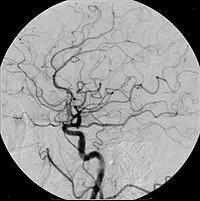- Home
- Medical news & Guidelines
- Anesthesiology
- Cardiology and CTVS
- Critical Care
- Dentistry
- Dermatology
- Diabetes and Endocrinology
- ENT
- Gastroenterology
- Medicine
- Nephrology
- Neurology
- Obstretics-Gynaecology
- Oncology
- Ophthalmology
- Orthopaedics
- Pediatrics-Neonatology
- Psychiatry
- Pulmonology
- Radiology
- Surgery
- Urology
- Laboratory Medicine
- Diet
- Nursing
- Paramedical
- Physiotherapy
- Health news
- Fact Check
- Bone Health Fact Check
- Brain Health Fact Check
- Cancer Related Fact Check
- Child Care Fact Check
- Dental and oral health fact check
- Diabetes and metabolic health fact check
- Diet and Nutrition Fact Check
- Eye and ENT Care Fact Check
- Fitness fact check
- Gut health fact check
- Heart health fact check
- Kidney health fact check
- Medical education fact check
- Men's health fact check
- Respiratory fact check
- Skin and hair care fact check
- Vaccine and Immunization fact check
- Women's health fact check
- AYUSH
- State News
- Andaman and Nicobar Islands
- Andhra Pradesh
- Arunachal Pradesh
- Assam
- Bihar
- Chandigarh
- Chattisgarh
- Dadra and Nagar Haveli
- Daman and Diu
- Delhi
- Goa
- Gujarat
- Haryana
- Himachal Pradesh
- Jammu & Kashmir
- Jharkhand
- Karnataka
- Kerala
- Ladakh
- Lakshadweep
- Madhya Pradesh
- Maharashtra
- Manipur
- Meghalaya
- Mizoram
- Nagaland
- Odisha
- Puducherry
- Punjab
- Rajasthan
- Sikkim
- Tamil Nadu
- Telangana
- Tripura
- Uttar Pradesh
- Uttrakhand
- West Bengal
- Medical Education
- Industry
Intravenous Radio-contrast Does Not Harm Kidney Function: JAMA

One of the most important reported harms of radiocontrast administration is acute kidney injury (AKI), an adverse effect known as contrast-induced nephropathy (CIN). However, a recent study suggests that Intravenous contrast is not associated with significant long-term kidney injury. The study findings were published in the JAMA Internal Medicine on April 05, 2021.
Radiocontrast has long been thought of as nephrotoxic; however, a number of recent observational studies found no evidence of an association between intravenous contrast and kidney injury. Because these studies are at high risk of confounding and selection bias, alternative study designs are required to enable a more robust evaluation of this association. Therefore, researchers of Canada conducted a study to determine whether intravenous radiocontrast exposure is associated with clinically significant long-term kidney impairment, using a study design that permits stronger causal interpretation than existing observational research.
In this cohort study, researchers included 156 028 patients of emergency department who have undergone D-dimer testing between 2013 and 2018 in the Canadian province of Alberta. They used a fuzzy regression discontinuity design exploiting the fact that individuals just either side of the eligibility cutoff for a computed tomographic pulmonary angiogram (CTPA)—typically 500 ng/mL—have markedly different probabilities of contrast exposure, but should otherwise be similar to potential confounders. The major outcome assessed was estimated glomerular filtration rate (eGFR) up to 6 months following the index emergency department visit.
Key findings of the study were:
- At baseline, the researchers observed that the patients just above and below the CTPA eligibility cutoff were similar in terms of measured confounders and there was no evidence for an association of contrast with eGFR up to 6 months later.
- Overall, the mean change in eGFR of −0.4 mL/min/1.73 m2 associated with CTPA exposure.
- Similarly, they found no evidence for an association with the need for kidney replacement therapy (risk difference [RD], 0.07%), mortality (RD, 0.3%), and acute kidney injury (RD, 4.3%), though the latter analysis was limited by missing data.
- They noted that the subgroup analyses were potentially consistent with harm among patients with diabetes (mean eGFR change −6.4 mL/min/1.73 m2), but not among those with other reported risk factors for contrast-induced nephropathy. However, they mentioned that these analyses were relatively underpowered.
The authors concluded, "Using a cohort study design and analysis that permits stronger causal interpretation than existing observational research, we found no evidence for a harmful effect on kidney function of intravenous contrast administered for CTPA in an emergency setting."
For further information:
https://jamanetwork.com/journals/jamainternalmedicine/fullarticle/2778363
Dr Kartikeya Kohli is an Internal Medicine Consultant at Sitaram Bhartia Hospital in Delhi with super speciality training in Nephrology. He has worked with various eminent hospitals like Indraprastha Apollo Hospital, Sir Gangaram Hospital. He holds an MBBS from Kasturba Medical College Manipal, DNB Internal Medicine, Post Graduate Diploma in Clinical Research and Business Development, Fellow DNB Nephrology, MRCP and ECFMG Certification. He has been closely associated with India Medical Association South Delhi Branch and Delhi Medical Association and has been organising continuing medical education programs on their behalf from time to time. Further he has been contributing medical articles for their newsletters as well. He is also associated with electronic media and TV for conduction and presentation of health programs. He has been associated with Medical Dialogues for last 3 years and contributing articles on regular basis.
Dr Kamal Kant Kohli-MBBS, DTCD- a chest specialist with more than 30 years of practice and a flair for writing clinical articles, Dr Kamal Kant Kohli joined Medical Dialogues as a Chief Editor of Medical News. Besides writing articles, as an editor, he proofreads and verifies all the medical content published on Medical Dialogues including those coming from journals, studies,medical conferences,guidelines etc. Email: drkohli@medicaldialogues.in. Contact no. 011-43720751


